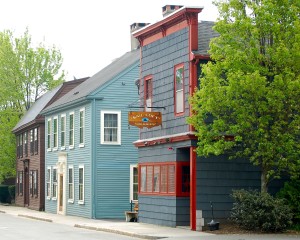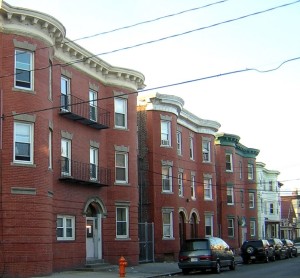August 2015 marked the third straight month of increased housing sales in Massachusetts. This continued spike has lawmakers worried about the availability of affordable housing in the commonwealth—housing units are being swooped up faster than they are being built. The goal is to make sure that, as MA continues to compete to bring in workers, it also competes to provide sufficient housing for those workers. A bill, sponsored by the Housing Committee co-chairs, Senator Linda Dorcena Forry (D) and Representative Kevin Honan (D), has been proposed that would increase the amount of housing stock in the commonwealth.
 Housing Partnership Directors Testify
Housing Partnership Directors Testify
In early October, advocates for the bill testified before the commonwealth’s Housing Committee. Somerville Mayor Joe Curtatone, among others, have stood behind the bill. MA Housing Partnership Executive Director Clark Ziegler testified that the average single-family home in metropolitan Boston takes up over one acre of land, which is about equal to one NFL football field. The size of these properties has less to do with what people want and more with what local zoning restrictions demand. Even though most buyers prefer homes on smaller lots in neighborhoods that are more walkable, zoning laws make these homes more difficult to put together. Many communities ban the building of multi-family homes altogether.
It isn’t news to say that the cost of renting housing (or the cost of taxes on owned property) in Massachusetts continues to spike. We’re still picking our jaws off the floor after reading this article about wages and rental costs. Even short-term rental properties face increased regulations and pricing. Residents statewide are feeling trapped—some areas are simply becoming too expensive for people to afford.
 Moderate and Low Income Residences
Moderate and Low Income Residences
One of the goals of the bill is to address the lack of low- and moderate-income housing stock in Massachusetts. If passed into law, the bill would require communities to report the ratio of employed residents and available, reasonably priced housing. It will also help measure the negative effects of certain kinds of development in particular communities (e.g., building football-field-sized properties in low-income neighborhoods). The bill represents hope for an increasingly difficult housing market, but advocates have had trouble prioritizing it over short-term-agenda items like neighborhood safety and the energy efficiency of housing units.
Massachusetts Housing Boom
The average MA home sale price in August were $359,000, three percent higher than it was in 2014. Despite these concerns, The Warren Group reported in early October that there had been more than 6,000 single-family home sales in August—more than any month since August 2005. Home sales were up 16% from August 2014. Many expect the number of sales to continue to increase into autumn.
The Housing Committee is reviewing a total of six bills related to housing. The bills cover topics such as the expedited construction of multifamily housing (buildings with 20 or more units); the general increase of lower-income housing; and the investigation of the shortage of accessible homes for people with disabilities, veterans, and the elderly.
The real question is, where do you stand? Are more housing developments the answer to the increased need for housing in Massachusetts?




